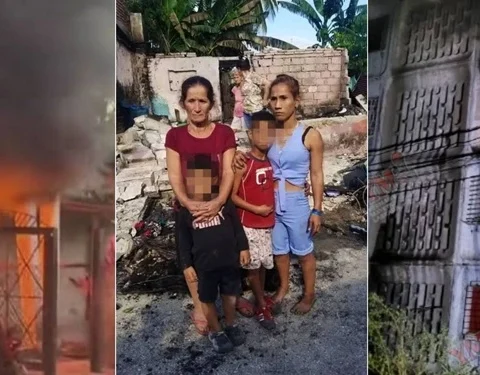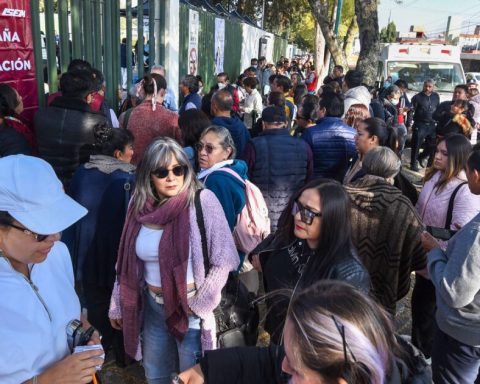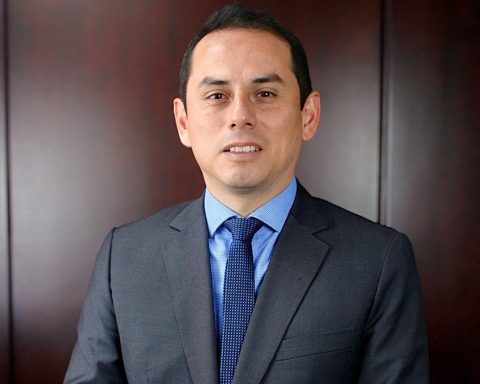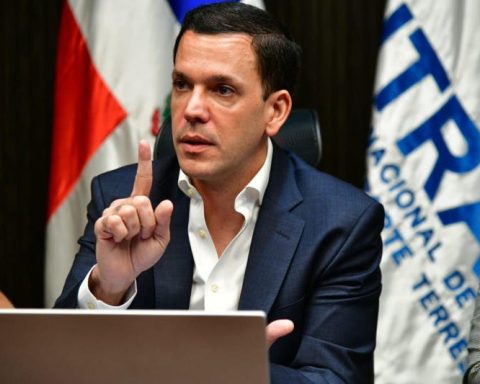Behind closed doors, without online transmission and without press, the extradition process of the former mayor of Antofagasta Karen Rojo Venegas, sentenced to 5 years and one day for tax fraud, will begin tomorrow at 5:30 Chilean time. The privacy decision corresponds to the Netherlands Court, this implies that only Rojo’s Dutch lawyers, the Netherlands prosecutor representing the State of Chile and the defendant will be present.
The European Court has already received (at the end of March when the extradition was requested), by the Antofagasta prosecutor’s office, headed by the prosecutor Cristián Aguilar Arabela, the ruling and the background of the case, which mainly prove that it is a serious crime whose sentence is greater than one year, in addition to the Law by virtue of which she was convicted, among other fundamental elements. This to find that the extradition request is accepted.
This instance, in turn, is vital for the defense, since it is the opportunity to argue and demonstrate that Karen Rojo has been a victim of political persecution and that for this reason she should be accepted as a refugee in that country.
Rojo’s main argument to support his argument is the Geneva Convention (1951). This is because he points out that refugee status can be requested by any person who has well-founded fears of being persecuted for certain reasons: political, religious opinion, belonging to an ethnic minority or a social group. In all cases, the individual must be able to demonstrate a real, present and individual risk of being subjected to acts of special gravity. Persecution is defined as a serious violation of the fundamental rights of the individual. However, the deprivation of an individual’s liberty as a result of a criminal conviction by a national court can sometimes satisfy this condition, but only if the custodial sentence appears disproportionate, taking into account the facts of the case.
In this instance, the former mayoress has had the support of her lawyer sister, the magistrate of Copiapó, Lorena Rojo Venegas. According to sources close to the former mayor, she has served as a bridge and guide for Dutch lawyers to collect arguments in Chile and build her argument. In this way, the defense has relied on collaborators in Antofagasta to collect documents, testimonies, possible witnesses and carry out a complete press search, “they have also sought links between witnesses and the government (at that time of Sebastián Piñera), including a relationship of political authorities with complaints of purchases due to Covid ”, says a source in Region II.
A professional and former collaborator of the mayor’s office adds that “they hope to show that everything was managed ‘from above’ to get Rojo out of the senatorial race. To support that, they will rely on polls that indicated that she was her favorite. And they will seek to demonstrate the relationship between RN characters related to main witnesses during the trial for embezzlement of public funds, especially former municipal officials of their two terms.”
In addition to political persecution, the defense would focus on arguing that the penalty is very high for a relatively low amount of tax fraud: around 23 million pesos and that this is precisely related to political movements against him. “They consider that it is a disproportionate sentence compared to other media cases, such as those of the ideologically false ballots or the Caval case, where the sentences were lighter compared to those of the former mayoress,” adds the source.
They would also allege that prison conditions in Chile would not be adequate for their client. To do so, they would present a table and report on the precariousness of Chilean prisons.
political disagreements
The origin of this persecution would be found in political disagreements, mainly with Renovación Nacional. For this they would be supported by press articles, interviews and testimonies focused on the conflict, for the senatorial quota, between Karen Rojo and the current senator Paulina Núñez.
Both politicians were born and grew up in Antofagasta, but they met in the first government of Sebastián Piñera. In 2012, Núñez was the regional ministerial secretary of the Government (Segegob seremi) when Rojo was appointed Health seremi.
In health control actions and surrounded by the local press, the former mayoress became famous. At that time, Rojo was close to RN, but she was elected to the mayor’s office as an independent, and she came closer to the Nueva Mayoría by supporting Alejandro Guillier when she felt little valued by RN. However, she ended up on the bench of UDI mayors and being a potential senatorial card of unionism.
During that time, the cross statements raised fears of a national conflict between the parties.
For example, Rojo asked that Cristián Monckeberg “not use his ministry to campaign for his wife.” He said that he “is the minister who makes the most visits and the one who presents the least progress.”
The then deputy, meanwhile, used to remind the mayor of her judicial problems: “(Red) has happened more in the courts than in the municipality. He is formalized for tax fraud, neglect of duties and embezzlement of public funds. I do not recognize any moral superiority in him, and unless he comes to summon me ”. In this regard, the mayoress of Antofagasta, in statements to Diario Antofagasta, affirmed that “it is evident that the deputy looks very nervous and fearful because the senatorial elections are approaching. That is why she resorts to criticizing authorities that we do the trick and we have the affection of the people ”. In the same publication, she added that she “has dedicated herself to trying to harm anyone who overshadows her, regardless of whether they are representatives of her same alliance as the UDI, she even buried the career of one of them. She is used to overthrowing authorities at any cost. That is the style of her ambitious politics that she does not measure consequences and where she does not care about the price, the only thing that matters to her is killing the political image of her competitors and mine ”.
After Karen Rojo was suspended from her position, during the investigation, the commune councilors chose her successor: the unionist candidate Gonzalo Santolaya, however, was defeated after the RN representatives aligned themselves with the opposition option to vote for the radical Ignacio Pozo who took office as interim mayor.
Fraud and escape
It all started when the then mayoress of Antofagasta decided to take a survey on her chances of being re-elected in the 2016 municipal elections. For this, he hired the political and communication advisor, José Miguel Izquierdo, in order to improve his position before public opinion and make his way at the polls.
To finance it, Rojo simulated a contract with the Municipal Corporation for Social Development of Antofagasta (CMDS), for a total of $23,722,428. The amount was paid with funds from the Education and Health area, so consequently and upon detecting the irregularity, the Public Ministry accused it of fraud. In addition, the former authority took funds from the Cultural Corporation of the commune, precisely ($23,145,123), for mobilization concepts, which were passed as supposed fees for the advisor for services that were never performed.
After the trial in the Oral Criminal Court of Antofagasta, Karen Rojo was sentenced to 5 years and one day in effective prison. The defense appealed the ruling to the Supreme Court. Pandemic involved, the final resolution did not arrive until March 23, 2022. That day the alarms sounded when Karen Rojo was not found after the Supreme Court ruling that dismissed the appeal for annulment presented by her defense and for which His conviction for tax fraud of more than 23 million pesos in the so-called Main Case was ratified. While this was happening, she was flying to Amsterdam in the Netherlands. She was able to leave the country because she did not have any precautionary measure or national roots, which meant a summary, ordered by the national prosecutor Jorge Abbott, against the Antofagasta prosecutor, Alberto Ayala.
From that moment the search by Interpol was activated, then the extradition was requested. And in April, clues were found indicating that Rojo had registered at a reception center for asylum seekers in Teo Apel, 200 km from Amsterdam. There the pharmaceutical chemist claimed political persecution against her. She was finally arrested on July 13, made available to the Rotterdam Courts and interned in the Utrecht women’s prison. That chapter could end tomorrow.
hearing and deadlines
According to Pierre François Laval, Professor of Asylum Law and Advising Judge of the French National Court of Asylum Law, who has a regime similar to that of the Netherlands, the possibility that the refugee claim will be accepted is not so easy. “There are many situations in which persecution can be characterized as a basis for the granting of refugee status. Being sentenced unfairly or disproportionate to the facts of the case, or being tried by a court that was not independent and impartial, or that did not respect other procedural guarantees, such as due process or the rights of the defense, can amount to a chase. However, no one can complain, in the framework of an asylum application, of the ordinary application of criminal law, in the case, for example, that the judge has found a crime of tax fraud, in the framework of a judicial procedure. appropriate. This hypothesis enters into the application of common law and its sanctions, and not that which concerns political asylum. A delinquent or criminal cannot escape the justice of his country by invoking asylum, unless he can show that the criminal proceedings against him are based on “political” motives in the broadest sense”, he explains.
On the argument of the defense of a disproportionate penalty, he points out: “I would simply speak of greater severity; justified through a law for the rest. In the current state of the information available, it seems difficult to consider that the sentence imposed on the lady Red is in itself “disproportionate”; in light of the legislation that concerns the punishments currently in force in matters of tax fraud; and that the sentence was necessarily motivated by political considerations, would I remind you that In November 2018, Law No. 21,121 was published and entered into force in your country, which constitutes a true reform of the regulations on the subject of anti-corruption, modifying several articles of the Penal Code, and that was after the creation of a commission (Engel), specially established for that purpose. This reform defines and penalizes the crimes of corruption between individuals and unfair public administration. More precisely, in the case of corporal punishment, these were increased in most cases, going from, for example, a maximum limit of imprisonment of a lower medium degree (that is, from 541 days to 3 years) to a maximum limit of minor imprisonment in its maximum degree (from 3 years and one day to 5 years)”.
In the next hour we will have some definitions. Once the hearing is over, the Tribunal must report whether it considers the extradition request by the Chilean State admissible and that the Tribunal set a deadline to communicate its ruling. It is estimated that this period will be approximately two weeks. It is also possible that the Court of the Netherlands will ask the parties for more information about the case and if so, the processing of the process would continue. Equally If the court in the Netherlands accepts the request for political asylum, the trial could be extended up to a year.


















